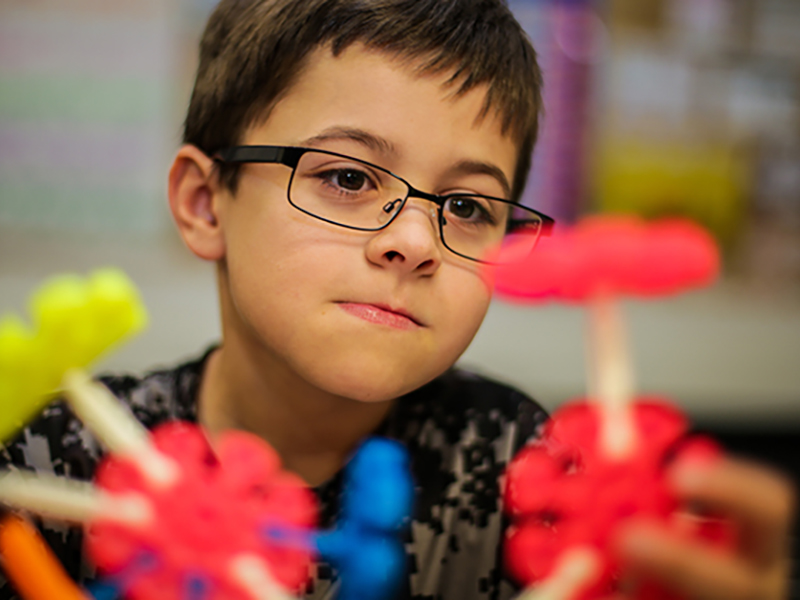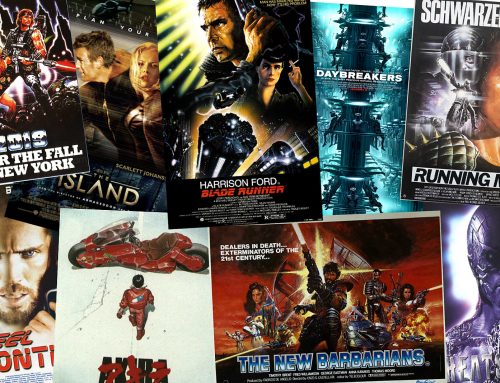By Cory Dobbs, Ed.D.,
Paradise Valley Unified
School District
WORLD-CLASS THINKING
The world is changing rapidly and more intensely than perhaps at any other time in recent history.
The challenges of preparing the 21st century student to function in tomorrow’s workforce are plentiful. According to research from the World Economic Forum, 35 percent of the skills necessary to succeed in today’s workplace will be dramatically different five to 10 years from now. In a world saturated with information, it’s imperative that today’s schools meet the long-term needs of the learner.
Today we know with full clarity that the workplace of tomorrow demands fluency in problem-solving and the ability to work interdependently. In other words, the basic skills needed for tomorrow’s knowledge-based workforce are wrapped up in techniques of thinking and communication. To be effective educators and parents, we must foster thinking in the child’s life. If we want to unlock the potential of a child, it’s essential that we find ways to help them explore, learn, and grow.
The world of the future insists students know how to develop and practice advanced thinking skills. The mission of PVSchools is to “cultivate, lead, and inspire world-class thinkers and expert communicators.” The accelerating world that’s coming into focus stresses nurturing and promoting multiple kinds of thinking. The following five types of thinking will enable today’s student to meet tomorrow’s challenges.
INTEGRATED THINKING
STEM (science, technology, engineering, and math) education has emerged as a new system of knowledge for the next generation of students. STEM education provides learners the opportunity to acquire tangible problem-solving skills by bringing together knowledge from the different core areas necessary for participating in a technology-based world. Interdisciplinary STEM programs provide valuable opportunities for students to explore, learn, and grow.
Science Foundation Arizona defines STEM as “an integrated, interdisciplinary approach to learning that provides hands-on and relevant learning experiences for students. STEM teaching and learning goes beyond the mere transfer of knowledge. It engages students and equips them with critical thinking, problem-solving, creative and collaborative skills, and ultimately establishes connections between the school, workplace, community and the global economy. PVSchools is committed to the exploration of science, technology, engineering and math in all content areas.
CREATIVE THINKING
Creativity is often thought of as something you either have or don’t have. We’ve all been told this is because some people are controlled by their logic-based left brain, while others march to the beat of the emotion sensing right hemisphere. The two hemispheres of the brain do function differently, but today we know we aren’t held captive by the way our brain works.
The real story of creativity is that on the one hand, some people are born with creative gifts. On the other hand, we now know creativity can be taught and learned.
PVSchools offers a variety of courses and programs that initiate and develop creative thinking. One such program, Suzuki Strings, shows how students can succeed by learning through creativity. The Suzuki Strings program embraces the educational philosophy of Shin’ichi Suzuki, a Japanese born educator. Suzuki believed that musical talent is not inborn, but rather all children could learn and master music.
For Suzuki, the outcomes are clear: “Teaching music is not my main purpose. I want to make good citizens, noble human beings. If a child hears fine music from the day of his birth, and learns to play it himself, he develops sensitivity, discipline, and endurance. He gets a beautiful heart.”
CRITICAL /ANALYTICAL THINKING
The world is changing. As the second decade of the 21st century approaches, we’ve discovered an educational certainty: thinking matters. No longer is it just enough to know the answers. Students must create meaningful questions; the kind that requires skillful thinking. They must be prepared to integrate critical and analytical thinking in everything they do. Analytical thinking is like good detective work—goal oriented and reasoned. While critical thinking is the careful use of facts to form a judgment.
As a parent, you want to raise a well-rounded child who is academically challenged and thinks about issues and problems beyond the community in which he or she lives – a member of a global society. At PVSchools, we are helping students on this pathway with the K-12 International Baccalaureate (IB).
IB focuses on each student as a whole person and addresses, not only the cognitive development but social, emotional, and physical well-being. The IB teaching methods are research-based and draw from the best educational practices from around the world. Additionally, IB teachers are required to participate in professional development opportunities to promote awareness of current educational practices and new thinking.
INTERPERSONAL INTELLIGENCE
The nature of work is radically changing. Much of how work gets done today is through teamwork. Team building, as any coach will acknowledge, is not a cookie-cutter process. Nor is it just a matter of a coach’s leadership style. What Google and great sports teams validate is the power of unified teams.
Google, one of the most influential companies in the world, recently concluded an extensive research project aimed at identifying how to build high-performing teams. You see, Google, like all other 21st century thinking organizations understands that future performance will be the domain of teams; the better the teams within an organization, the better the organization. So Google created an intense project—Project Aristotle—and invested heavily in gathering data to figure out the best way to build better teams.
Their conclusion: it’s not simply who is on the team, rather it’s how the team’s members interact with one another that determines its performance. To succeed in tomorrow’s workforce, students are going to need people skills. In today’s technology infused world, the cultivation of interpersonal skills is vital. At PVSchools, extracurricular activities such as athletics, band, clubs, and student-government, as well as the classroom, help the young student develop the abilities to collaborate, communicate, and build effective relationships.
PRACTICAL THINKING
“Houston we have a problem.” These are the ominous words astronaut Jim Lovell uttered to the NASA command center on April 14, 1970. Lovell and his crew knew something was wrong with their spacecraft, but were unaware of the extent of the problem. Faced with a puzzle of a problem, Apollo 13’s revised mission became one of survival.
To bring the Apollo 13 spacecraft home safely, the crew and the command staff—more than 199,000 miles apart—had to apply practical thinking. Practical thinking is often referred to as “street smarts.” When you solve problems with the resources at hand, you are engaging in practical thinking. The astronauts aboard the spacecraft had to adapt to the situation, and deploy flexible thinking in the way they addressed problems as they emerged. They didn’t need to analyze data to draw conclusions. Getting the spacecraft back to Earth required using the practical intelligence of the astronauts.
At PVSchools, the Career and Technical Education (CTE) Department offers a wide range of programs which provide students the rigor and relevance needed to succeed in today’s global economy. Students are presented with opportunities to develop specialized skills while in high school and apply their academic knowledge in real world settings.
Regardless of post-secondary plans, CTE provides all students with cutting edge training and opportunities in their chosen program of study.
HOW TO DEVELOP YOUR CHILD’S UNIQUE SET OF THINKING ABILITIES
Think about these questions:
• What is your child’s unique set of thinking abilities?
• Which environment brings them out?
• How and where can you intentionally leverage them?





